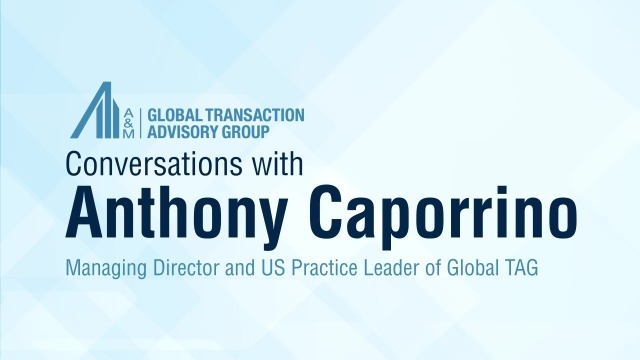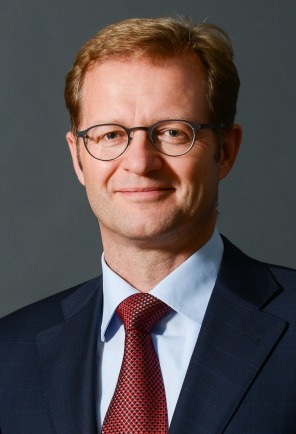Germany M&A Activity Continues, But May Slow in Last Half of 2022
Merger and acquisition (M&A) activity in Germany sustained its strong pace in the first six months of 2022, but dealmaking in the second half of the year faces several challenging factors. Some of these headwinds are more pronounced in Europe because of the Russia-Ukraine war and the resulting impacts on supply chains and energy prices, particularly on the availability of natural gas.
Additionally, inflation is at 40-year highs and valuations remain at lofty levels. Such uncertainty is not a good deal facilitator and may lead to a possible slowdown as investors hold back to see how things settle out toward year’s end.
Nevertheless, overall announced deals in the first half of 2022 reached 524 events, outpacing activity in the same period in 2021 with 506 deals made. Private equity (PE) M&A activity reached 240 deals at the midpoint of 2022, up slightly from 222 in the first half of 2021; however, we’re observing a quarter-to-quarter slowdown from 125 exits in the first quarter in 2022 to 115 exits in the second quarter.
Corporate deals in the first six months of 2022 totalled 284, equalling the number of exits in the same period in 2021.
Germany M&A Deal Values
Aggregate disclosed deal values for the first half of 2022 reached €41.3 billion, down from €68.7 billion during the same period the previous year. Second quarter total deal value was €25 billion, down significantly from the second quarter 2021 total of €44.7 billion. However, PE-backed activity reversed 2021’s trend and outpaced total corporate value with €13.6 billion compared to €11.5 billion.
Harvard Law School Forum on Corporate Governance predicts a further slowdown through the end of 2022 Globally and noted that deal values are down 20 percent compared with the first half of 2021. The slower pace comes as dealmakers face one of the most challenging environments in recent history. The publication also reported that deal volumes and values across Europe fell 12 percent and 33 percent, respectively. Lower investor confidence and high energy costs are likely to blame.
PE deal value across Europe of about €463.5 billion outstripped last year’s first half by 35 percent with 4,053 deals made, up 16 percent from the same period a year ago according to research and data provider PitchBook.
Despite these challenges, deal activity continues near all-time highs heading into the summer of 2022, and the market has a growing backlog of potential deals as PE and Corporate dealmakers wait for conditions to improve or anticipate higher funding costs for projects.
Notable Deals in Germany
A few companies headlined M&A news during second quarter of 2022. Among the most notable and largest disclosed deal values were:
- VTG AG: Global Infrastructure Management, a United States based infrastructure fund manager, purchased a 72.55 percent stake of VTG AG, a Germany based provider of railcar leasing and rail-based logistics solutions, from Morgan Stanley for approximately €4.8 billion.
- Corden Pharma International: The Germany based pharmaceuticals manufacturer was purchased by Astorg Partners, a French PE company, for approximately €3 billion.
- Aareal Bank AG: Advent International and Centerbridge Partners, private equity firms, purchased the Germany based provider of finance, advisory and other services for approximately €1.975 billion.
- Medifox Dan GmbH: The Germany based software-medical technology company was purchased by the U.S. based medical products manufacturer ResMed for approximately €9.6 billion from German private equity fund HGCapital.
Our View on the Coming Months in German M&A
Over the past few years M&A activity has had tailwinds due to unprecedented liquidity. With the cost of funding increasing and valuation expectations rebalancing, the second half of 2022 will not likely be as positive as in previous periods.
While we see opportunities in the second half for dealmakers, several factors point to an uncertain market, including:
- PE Reluctancy: PE fund investment committees are becoming much more reluctant, absorbing a higher number of aborted transactions, with potential deal lists expanding as funds hold off on closing deals as they wait on conditions to change.
- Corporate concerns: Corporate players will continue to be active in M&A, however, they are increasingly less willing to accept high prices in the current market.
- Valuations: The main reason deals may die on the vine in the second half of 2022 is the aversion to high valuations. Expect valuations overall to decrease but remain high for Healthcare and Technology, Media, and Telecom sectors.
- Long-term disruptions: Supply chain challenges from the Russia-Ukraine war may further affect deals. The shift in the energy and gas sector resulting from the war may be a factor impacting deals going forward.
- Summer pause: Following the extreme pace of PE M&A activity through the first half of the year, a summer hiatus will occur as executives take August off for holiday.
What’s next after the summer break is over? Are we facing a further slowdown, or will activity pick up?
There will still be deals to be had and aborted events to watch as investors navigate an environment of both opportunity and great uncertainty. PE has been taking a larger share of deals over the past year. With high amounts of dry powder, PE funds may have the best chance of closing deals by the end of the year.


